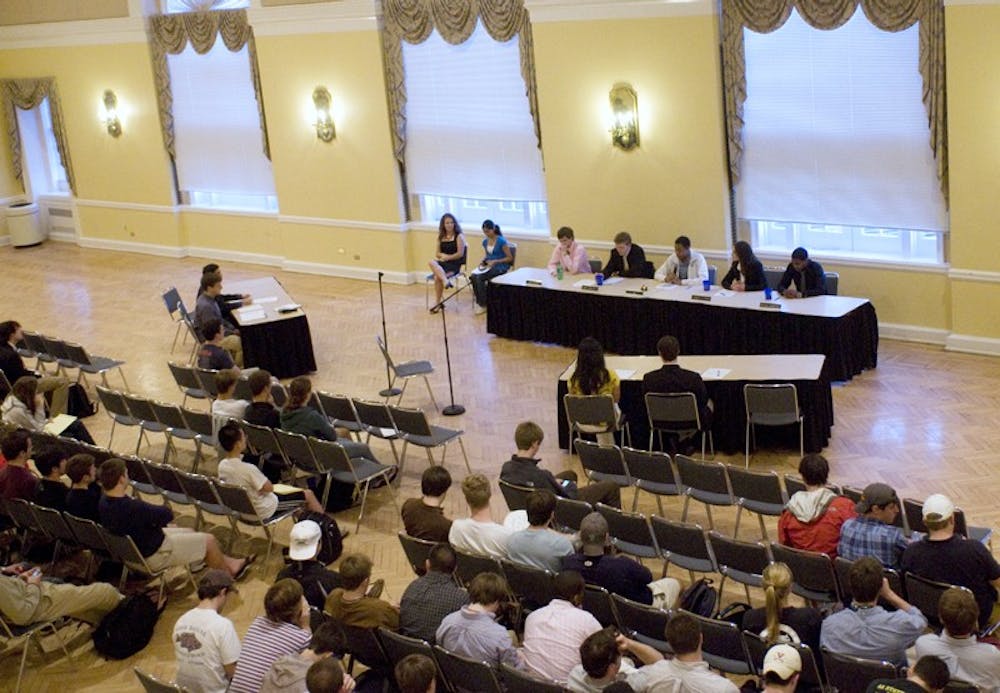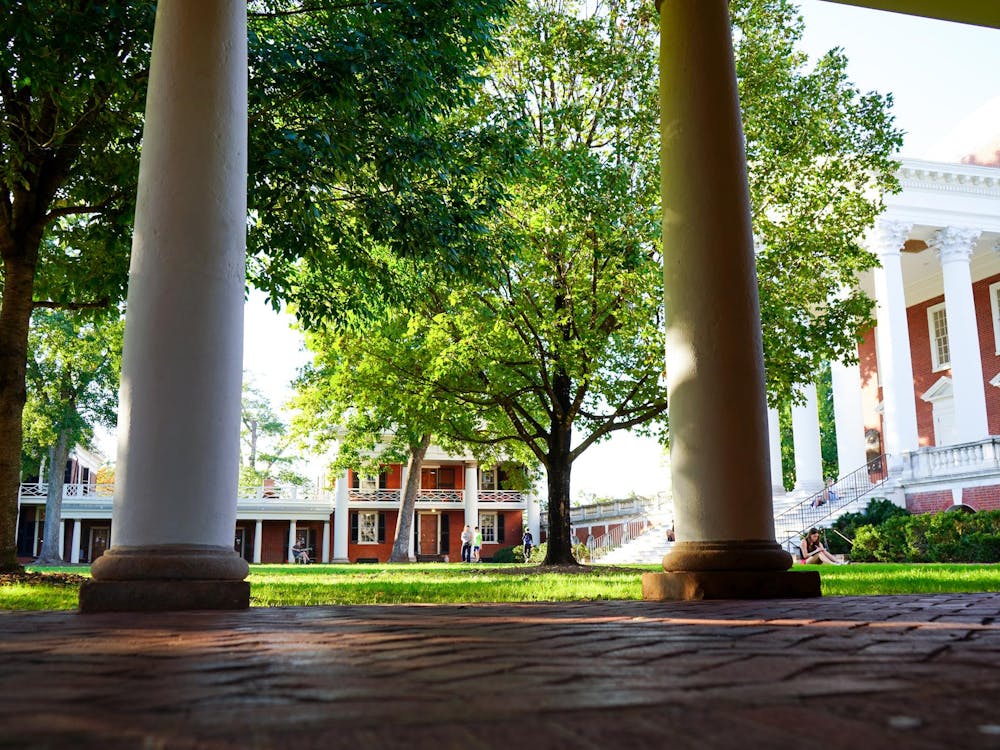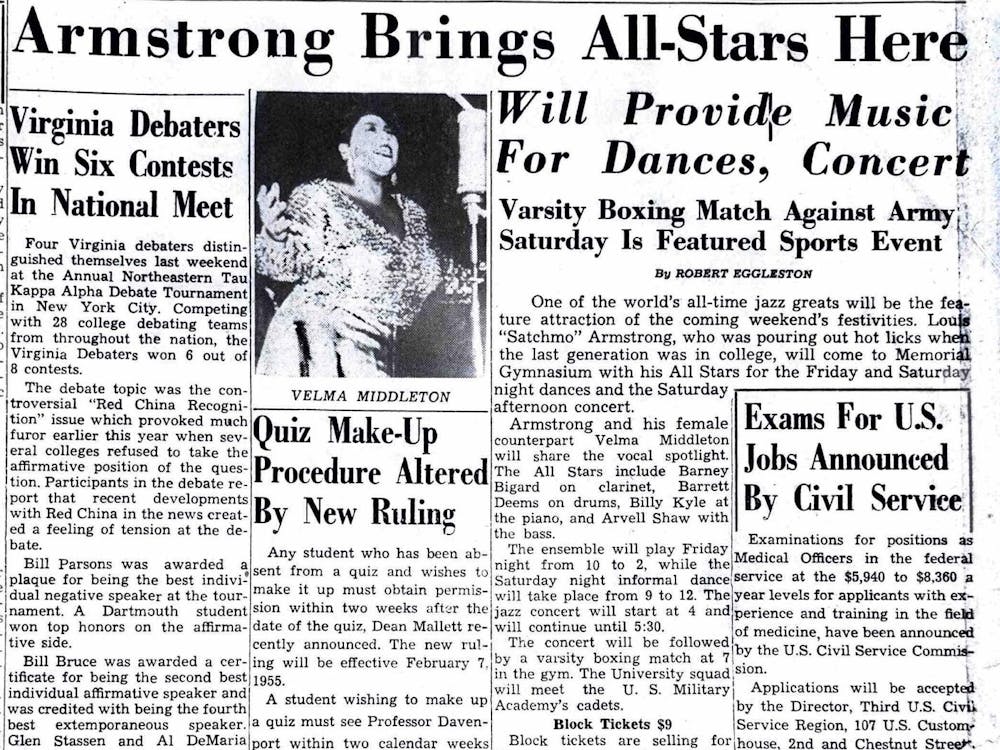The first-ever University Judiciary Committee mock trial took place in Newcomb Ballroom yesterday evening to outline basic procedures of a typical case. UJC hoped the trial would increase awareness and education of trial proceedings among students.
UJC advertised the mock trial through e-mail list-servs, fliers and on Facebook in an effort to bring students to the event and educate them about a process that is not necessarily readily available to the general public, Trial Counselor Lauren Lessard said. UJC Chair Michael Chapman noted that about 150 students attended the event.
The public is only allowed to attend open trials, Lessard said, while most accused students choose the option allowed to them of having trials closed to anyone outside of the cases. As a result, Lessard said students often are in the dark when it comes to UJC operations.
"Usually the first thing people want to know about UJC is what to expect from a trial," she said. "Until now, we didn't have a way to make the UJC trial process more open since it's usually confidential."
It is not only the typical student who Lessard hopes will benefit from the trial but also new members of UJC who are not yet familiar with the processes.
During the mock trial, UJC members acted out a fictitious case in which a student was pulled over for driving under the influence.
"UJC covers a wide spectrum of cases, ranging from very bizarre to more common scenarios. We wanted to showcase a trial in the middle. We chose a DUI case because it's not too uncommon and there's a lot at stake," Lessard said. "This trial is very realistic."
Students acted out various required meetings. After the arrest, the accused student was sent to a dean of students to explain the situation, and in turn, encouraged to take an intake session with Counseling and Psychological Services. The student then met with a counselor, while another student who represented him in the case.
If the student pleads not guilty to the charge, UJC conducts a trial for guilt. If the student pleads guilty, UJC conducts a trial for sanction. The student then is sent to another meeting with an investigator who creates a comprehensive report of the incident.
To improve transparency of UJC proceedings, the mock trial emphasized importance of a student's rights. The student was informed of his right to confidentiality, right to know what his charges were and what sort of sanction he might be facing. The student judges decided which sanction was appropriate, and the student was informed of the results at a later date.
Although the mock-trial presented a start-to-finish lesson about the processing of a case, a verdict was not given to the accused student.
"We wanted to avoid precedents, as there is a different set of judges for different cases," Chapman said. "We didn't want to give the idea that this specific event would cause a specific sanction because it varies."
Chapman said he was pleased with the turnout and described the trial as very educational.
"I really hope this event will be replicated in the future," Chapman said.







